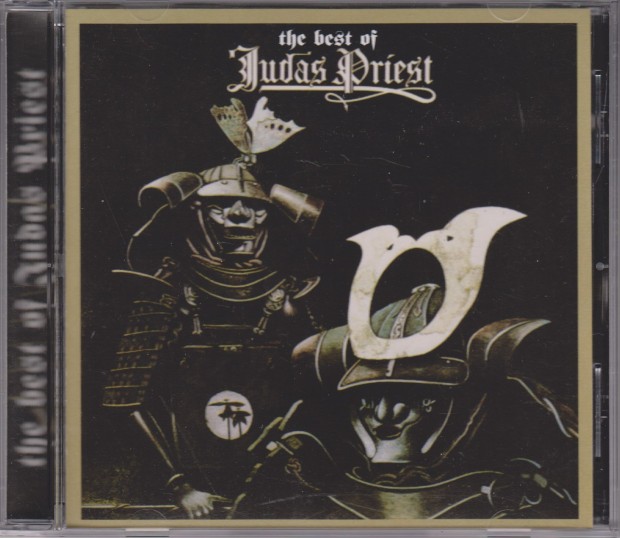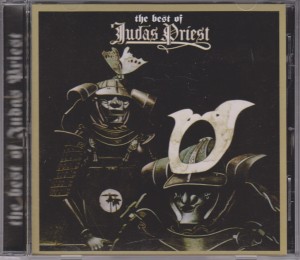 JUDAS PRIEST – Hero, Hero (1981 Gull)
JUDAS PRIEST – Hero, Hero (1981 Gull)
It’s true: By all measurements, Hero, Hero is an exploitive compilation of Judas Priest material. Their first record label, Gull, was prone to do this. However this is no typical “hits” set; this one is of interest to collectors and die hard fans.
Hero, Hero (named for a lyric from the song “Dying to Meet You”) was originally released in 1981 to take advantage of Priest’s rising star. The original two releases on Gull records, Rocka Rolla and Sad Wings Of Destiny, had been exploited previously in a compilation called The Best Of Judas Priest, which was a single record. Hero, Hero was a double record which included all of Rocka Rolla and most of Sad Wings, as well as the crucial Joan Baez cover, “Diamonds and Rust”, in an alternate take (previously heard on Best Of).
So, if you have all that material already, why is this album required at all? Cover art aside, of course. That cover (a pre-existing painting) is brilliant. There is also a Kiss bootleg called Barbarize with the same cover.
The reason is revealed in the liner notes. All of Rocka Rolla had been remixed for this release. Why is unknown, as that record sounded just fine for what it is. The remixes are, in general, not even all that different. The major changes are made during “Cheater”, the “Winter” suite, and “Rocka Rolla” itself, during which major portions of the songs are noticeably shifted around. “Rocka Rolla” has its verses rearranged, and there’s a burst of harmonica in “Cheater” where there never was before.
The remix done to Rocka Rolla doesn’t really add or subtract anything from the album, which makes it that much harder to understand why it was done. Why Gull records spent the money to remix these tracks is unknown, and the names of the engineers involved are a mystery. But there it is: Rocka Rolla remixed in its entirety but not in order, here on the Hero, Hero album. Because they’re less familiar to the ear, they sound fresh, but in many cases you’d struggle to point out differences. A little reverb here, a little echo there.
Highlights including a bluesy “Cheater” and the flanged chug of “Diamonds and Rust”. The six tracks from Sad Wings of Destiny are brilliant. “Dreamer Deceiver” and “Deceiver” are used to open this CD, but that is not the original running order. Normally the album begins with “Prelude” and “Tyrant”, also from Sad Wings. The original Canadian cassette version on Attic maintained the original running order with “Prelude” at the start. Essentially, the Connoisseur Collection CD has side one and side two flipped.
Fair warning to CD buyers: There are some shoddy reissues of this album that don’t have the remixed tracks. Transluxe is one such version. To make your life easier you might just want to look for an original 1981 LP. The pictured CD from Connoisseur Collection (1995) does have the remixes, so you’re good to go if you spot one.
3/5 stars














